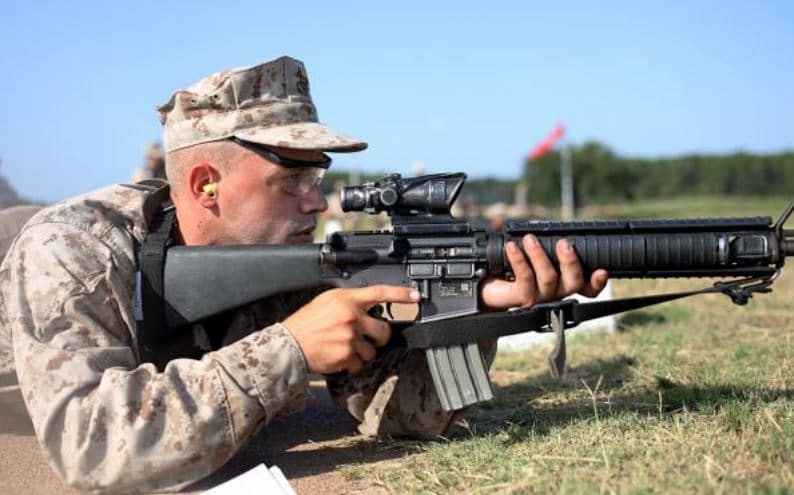Appeals Court Rules That Only Men Can Be Drafted by U.S. Military

Only men can be drafted into the U.S. military, a federal appeals court in New Orleans ruled last week.
The ruling was based on a lawsuit filed by the advocacy group National Coalition for Men and two men who alleged sex discrimination.
They argued that a male-only draft violated the Constitution’s 5th Amendment Due Process rights by singling out men.
However, the 5th U.S. Circuit Court of Appeals said it had no discretion to override a 1981 U.S. Supreme Court case that upheld a male-only draft.
The Military Selective Service Act requires men between the age of 18 and 26 to register with the Selective Service System. They could be fined, imprisoned or denied federal benefits if they refuse, which has happened only rarely.
Women are not required to register.
When the issue arose previously in the case of Rostker v. Goldberg, the Supreme Court ruled that it was required to follow mandates of federal law.
“We conclude that Congress acted well within its constitutional authority when it authorized the registration of men, and not women, under the Military Selective Service Act,” Chief Justice William Rehnquist wrote for the divided court.
In the most recent lawsuit, the National Coalition for Men argued that the Supreme Court’s decision no longer reflected changes in attitudes toward women’s roles in the previous 39 years.
A pivotal change for women since the 1981 Supreme Court ruling came during the 1991 Persian Gulf War, when more than 40,000 women served in every job the U.S. armed services offered. They were limited only by a ban on women serving in direct ground engagements.
The Supreme Court recognized women’s growing importance to the military by its 1996 ruling in United States v. Virginia, when it struck down the male-only admission policy of the Virginia Military Institute, a publicly-funded college.
In the War on Terrorism that included U.S. invasions of Iraq and Afghanistan, more than 200,000 women served. There were 152 killed, 84 of them in combat.
Congress recognized the evolving status of military women in its 2011 defense bill. It directed the Defense Department to review its policies and regulations that restricted the service of female service members.
It led to policy changes that reduced barriers to women in the military.
In 2016, the Defense Department approved plans to open all combat jobs to women.
The three-judge panel of the 5th U.S. Circuit Court of Appeals agreed last week that times have changed in the military since 1981.
The court’s ruling said, “The factual underpinning of the controlling Supreme Court decision has changed, but that does not grant a court of appeals license to disregard or overrule that precedent.”
Initially, the National Coalition for Men won when it filed its lawsuit against the Selective Service System in U.S. District Court for the Southern District of Texas. The Court granted a declaratory judgment in favor of the Coalition.
“In the nearly four decades since [the 1981 Supreme Court case of] Rostker, however, women’s opportunities in the military have expanded dramatically,” the district court’s ruling said.
The appellate court decision this week reversed the ruling.
It said that “only the Supreme Court may revise its precedent.”
The National Coalition for Men is a non-profit educational and civil rights organization that seeks to address the ways sex discrimination affects men and boys.
Harry Crouch, the Coalition’s president, said he was “disappointed” with the appellate ruling.
“At this time, [the National Coalition for Men] is exploring its options, including filing a Petition for Writ of Certiorari with the United States Supreme Court,” Crouch said in a statement.
























